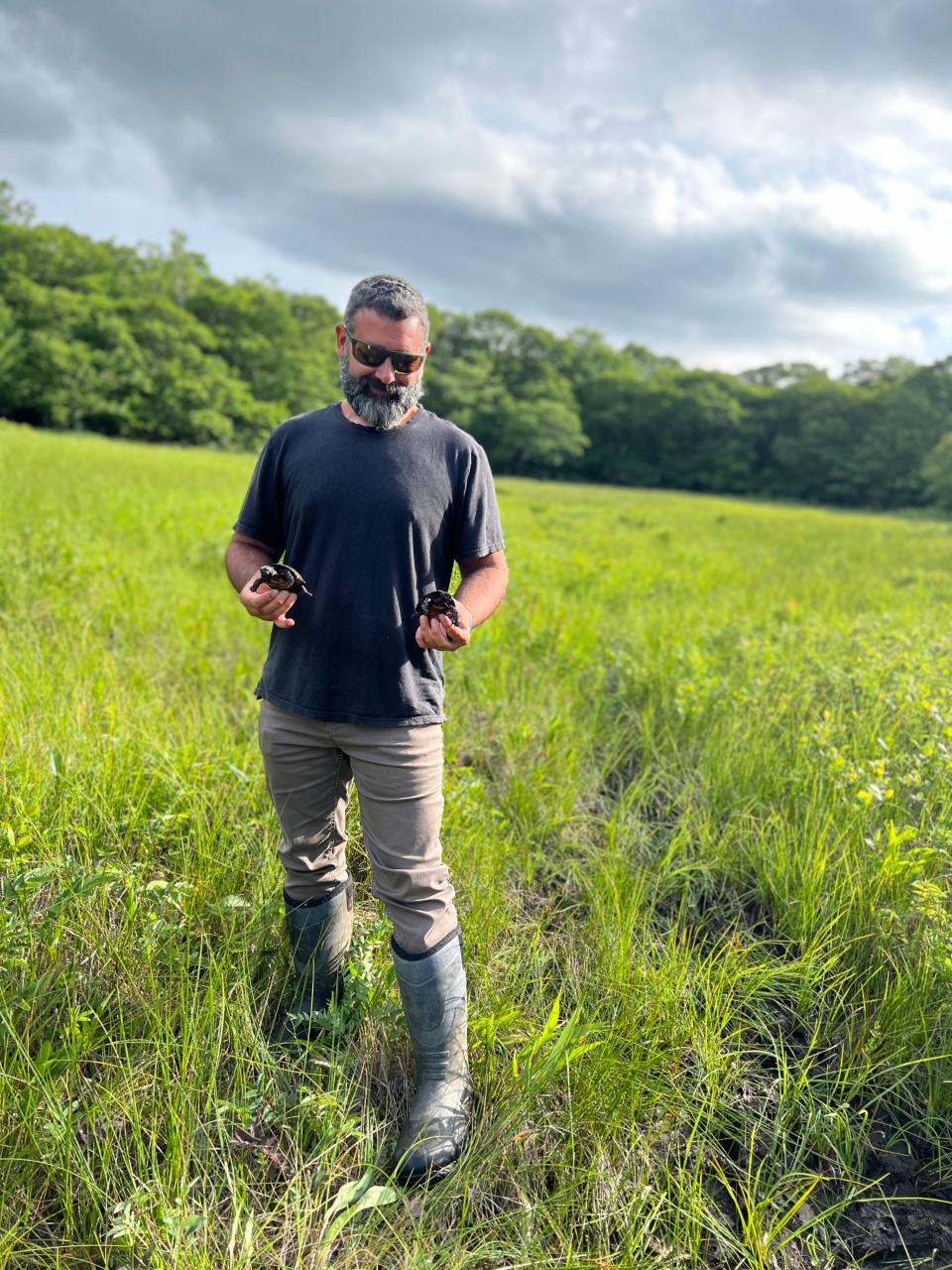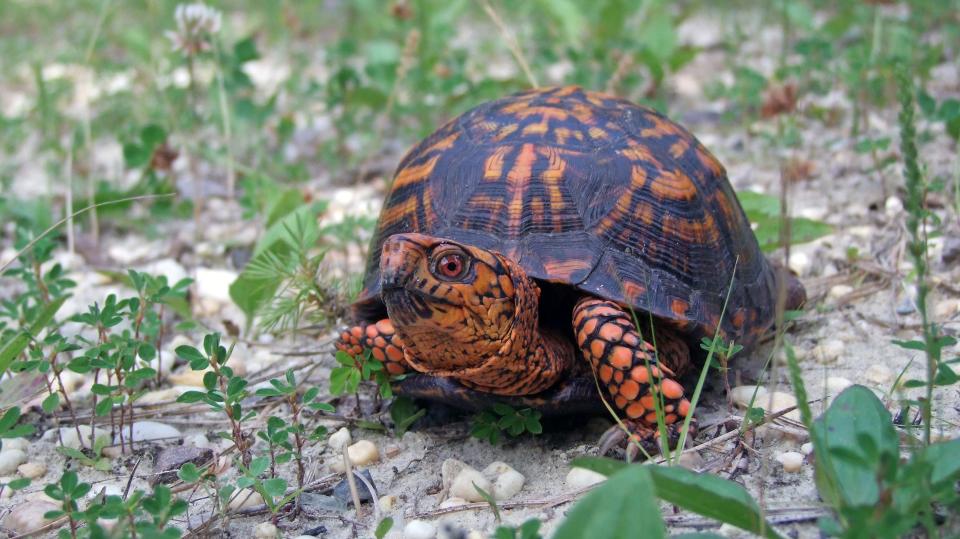Asheville scientist combats illegal turtle trafficking with genetics, receives $100K prize
ASHEVILLE – Conservation biologist JJ Apodaca and his Asheville-based organization, Tangled Bank Conservation, are working to save two of the most poached turtle species in the United States, which are found in North Carolina.
They recently received a $100,000 prize for the cutting-edge genetic sequencing techniques they use to combat this trafficking.
Apodaca, who is also the executive director of the Amphibian and Reptile Conservancy, was one of five applicants selected to receive the 2023 U.S. Fish and Wildlife Service Theodore Roosevelt Genius Prize. The TRGPs, established in 2019, are awarded yearly to applicants who “foster technology-driven solutions that can solve conservation challenges.”
Apodaca told the Asheville Citizen Times that this genetic sequencing is saving the lives of turtles that would otherwise be subjected to unhappy endings.
“For most of the history of this happening, those turtles were euthanized, or in best case scenario put into a zoo or educational setting,” Apodaca said. “But there's only so much room for animals like that.”

More: Word from the Smokies: What happens when we relocate box turtles?
Biodiversity, which Apodaca called “the currency that species use to adapt to changes,” can be harmed by releasing turtles without knowledge of their origins. Due to this, law enforcement responsible for seizing these animals from poachers have historically been left with no other choice but to euthanize.
With technology like Apodaca’s genetic sequencing, however, scientists can match the DNA of seized turtles to their original habitats, making it possible to safely release them into the wild. The $100K in prize money will go toward the development of a genomic database for three of the most poached turtle species in the U.S.: Eastern box turtles, alligator snapping turtles and Blanding's turtles.
“If we want to be able to identify where poached turtles came from, we have to collect a bunch of samples in the wild, sequence those, and build the database so that when we do get an alligator snapping turtle that has been poached out of Louisiana, we have that river represented in our database, and we can trace it back,” Apodaca said.
The ARC stated in a recent news release that millions of U.S. turtles are poached yearly to be sold illegally for food and pet trade. Apodaca said that N.C. and other Southeastern states, which are home to many of the eastern box turtles and alligator snapping turtles his team hopes to preserve, may be particularly vulnerable to this practice.

“We've seen major poaching cases and busts occur in nearly every state in the East,” Apodaca said. “And it's essentially because we're such a biodiverse region and biodiverse state. Poachers definitely come here and poach within North Carolina, or certainly within the Southeast.”
Without intervention, Apodaca said that North Carolina could potentially lose iconic species like the Eastern box turtle forever. He told the Citizen Times that box turtles are currently the most poached turtle species in the country.
“Anybody who spends time in the woods and is over the age of 40 or 50 can tell you that you see a lot less box turtles than you used to,” Apodaca said.
Alligator snapping turtles are also becoming increasingly rare. In fact, these turtles are currently being considered for protection under the Endangered Species Act. With the help of genetic sequencing, scientists like Apodaca and his team are working to combat this growing problem. In 2021 Apodaca and his team successfully identified the home river of 44 alligator snapping turtles rescued from poachers in 2016, allowing law enforcement to finally release the seized turtles into the wild.
Apodaca reminded N.C. residents that they can help the cause by supporting local conservation and habitat restoration efforts. He suggested subscribing to the ARC’s newsletter, which can be found on their webpage; simply staying aware of these issues can go a long way in supporting their work, Apodaca explained.
“This is an incredibly real threat that could lead to the Southeast and North Carolina not having wild turtles to interact with, and that's obviously detrimental to our ecosystems, but is really detrimental to us culturally,” Apodaca said. “If we and our children, and our children's children can’t experience the joy and wonder of finding a box turtle wandering in the woods, what kind of connection with nature do we lose?”
More: US Forest Service proposes to conserve old-growth forests, including Pisgah, Nantahala
More: Endangered butterflies, bats return to natural habitat after WNC nonprofit restorations
This article originally appeared on Asheville Citizen Times: Asheville biologist combats NC poaching trade

